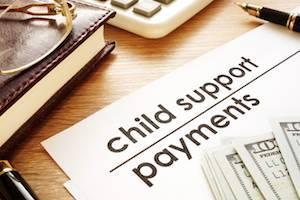Recent Blog Posts
What You Need to Know About Contesting a Prenuptial Agreement
 Hollywood is accustomed to ugly divorces. In 2018, Jersey Shore actor Jenni “JWoww” Farley filed for divorce from her husband, Roger Matthews, and now Matthews is contesting the validity of the couple's prenuptial agreement. While the concerns of reality TV stars do not apply to most of us, any couple can have a prenuptial agreement. If you are going through a divorce, and you have a prenup, you will want to be sure to understand how Illinois law will apply to your case, including whether your prenuptial agreement can be contested.
Hollywood is accustomed to ugly divorces. In 2018, Jersey Shore actor Jenni “JWoww” Farley filed for divorce from her husband, Roger Matthews, and now Matthews is contesting the validity of the couple's prenuptial agreement. While the concerns of reality TV stars do not apply to most of us, any couple can have a prenuptial agreement. If you are going through a divorce, and you have a prenup, you will want to be sure to understand how Illinois law will apply to your case, including whether your prenuptial agreement can be contested.
Prenuptial Agreement Laws in Illinois
The Illinois Uniform Premarital Agreement Act governs all prenuptial agreements filed in the state of Illinois. This law states that to be enforceable, both parties must agree to the prenup and sign it. The agreement will go into effect on the couple's wedding day.
The Illinois statute includes some provisions on what is unlawful to include in a prenuptial agreement. These include any terms that violate public policy or criminal statutes. Spouses are also not allowed to waive the right to receive child support or agree that a parent will not be required to pay his or her child support obligations.
Can a Divorced Parent Leave a Child with Another Person?
 The terms of a divorce settlement or judgment will attempt to cover the many different issues the two parties will face as a divorced couple. However, marital settlement agreements cannot possibly cover every situation. One of the most common situations divorced couples with children face is whether or not parents should leave their child alone with another person, such as a babysitter, when they cannot care for them.
The terms of a divorce settlement or judgment will attempt to cover the many different issues the two parties will face as a divorced couple. However, marital settlement agreements cannot possibly cover every situation. One of the most common situations divorced couples with children face is whether or not parents should leave their child alone with another person, such as a babysitter, when they cannot care for them.
It can be upsetting to hear that a child was left with someone other than their parent. This is particularly true when one parent does not personally know the person watching the child. While this type of situation can be stressful and sometimes cause arguments, is it against the law?
The Right of First Refusal
Historically, Illinois did not have many laws on the books pertaining to someone other than a parent watching a child. However, as of January 1, 2014, parents can choose to leave their child with someone else, but they may first have to ask the other parent. This is known as “right of first refusal,” and this right is covered under 750 ILCS 5/602.3. This statute simply requires that, in certain cases, the parent caring for the child could be required to give the other parent the first opportunity to watch them.
Mediation or Collaborative Divorce: Which Is Best?
 When a couple chooses to get a divorce, it can be one of the most difficult decisions to make. However, once this decision is made, spouses quickly learn that they must also decide how to proceed with their divorce. In many cases, they will want to work together to settle their differences rather than pursuing costly litigation in court. Two methods of alternative dispute resolution are mediation and collaborative law. So, which is best for a couple to choose?
When a couple chooses to get a divorce, it can be one of the most difficult decisions to make. However, once this decision is made, spouses quickly learn that they must also decide how to proceed with their divorce. In many cases, they will want to work together to settle their differences rather than pursuing costly litigation in court. Two methods of alternative dispute resolution are mediation and collaborative law. So, which is best for a couple to choose?
Mediation
During divorce mediation, a couple will work with a qualified mediator. The full mediation process is outlined in the Uniform Mediation Act, found in the Illinois Compiled Statutes. Over the course of several meetings, the mediator will help the couple come to an agreement about the outstanding issues in their divorce. The agreement will include many different terms, including a parenting plan, child support and alimony obligations, and decisions about the division of property and debts.
How Will the Proposed Illinois Fair Tax Law Affect Married Couples?
 When Illinois Governor J.B. Pritzker announced a proposal for his new tax plan in Illinois, he sparked debate throughout the state. Some praised what Pritzker called the fair tax law, saying it would only tax the rich and provide more money for low to middle wage earners. However, others have pointed to a major flaw in the proposal, and those opposed to it say it is going to hurt one more group: married couples.
When Illinois Governor J.B. Pritzker announced a proposal for his new tax plan in Illinois, he sparked debate throughout the state. Some praised what Pritzker called the fair tax law, saying it would only tax the rich and provide more money for low to middle wage earners. However, others have pointed to a major flaw in the proposal, and those opposed to it say it is going to hurt one more group: married couples.
The Marriage Penalty Under Fair Tax Law
Traditionally, when a couple jointly files their state or federal taxes, they file in separate tax brackets from those that file individually, allowing them to take advantage of tax savings. However, whenever two earners of the same household owe more taxes by filing jointly instead of separately, it is considered a marriage penalty. The new tax law proposed by Governor Pritzker does not provide different brackets that allow couples to reap more savings. Instead, couples are likely to owe higher taxes.
How Is Ownership of Pets Handled in an Illinois Divorce?
 Every spouse has possessions they value more than others, and if divorce happens, these seemingly small differences will often take on a new significance when negotiating or litigating a property settlement. With most possessions, a level of detachment remains, even if a spouse does have an affinity for it in divorce. The same cannot be said for pets in most households, and many owners view pets as members of the family. Fortunately, Illinois is one of just a few states that has a law addressing the issue of pets in a divorce.
Every spouse has possessions they value more than others, and if divorce happens, these seemingly small differences will often take on a new significance when negotiating or litigating a property settlement. With most possessions, a level of detachment remains, even if a spouse does have an affinity for it in divorce. The same cannot be said for pets in most households, and many owners view pets as members of the family. Fortunately, Illinois is one of just a few states that has a law addressing the issue of pets in a divorce.
One woman wanted to prevent another occurrence of a sad situation she experienced at the end of her first marriage when her husband used her attachment to the family dog to get her to make concessions during divorce. When she decided to marry for a second time, she included the issue of pets in a prenuptial agreement so there would no question or fight about it if the marriage ended. Resolving this issue is a large concern for many divorcing couples, so it is important to understand how the law applies to these situations.
Who Qualifies as a Legal Parent in an Illinois Paternity Case?
 Taking care of a child is a monumental task that involves both physical caretaking and making decisions that impact a child's daily and long-term life. While the specific duties shift over time as the child ages, the responsibilities of a parent never completely go away. Most parents perform these as simply a part of fulfilling this role, and a parent may never stop to consider whether he or she qualifies as a legal parent, or what this designation even means.
Taking care of a child is a monumental task that involves both physical caretaking and making decisions that impact a child's daily and long-term life. While the specific duties shift over time as the child ages, the responsibilities of a parent never completely go away. Most parents perform these as simply a part of fulfilling this role, and a parent may never stop to consider whether he or she qualifies as a legal parent, or what this designation even means.
The designation of legal parent brings a number of rights and obligations that only certain people are eligible to receive, regardless of the love and care a person may give to a child. Specifically, legal parents are the only adults authorized to make decisions on behalf of the child, particularly those related to education and medical treatment. In addition, only a legal parent is permitted to request access to the child and parenting time in the event of divorce or separation. With all of the non-traditional family structures that make up society today, this status is not the given it was in the past.
How to Modify Child Support in Illinois

Child support is a relevant issue in any divorce that involves children under the age of 18. Once a judge issues an order for child support, that order is legally binding. If child support is not paid, the courts may find the non-paying parent in contempt of court. There are times, however, when a parent has a problem paying their child support payments. In these instances, is it possible to modify a child support order? It is possible, but it is not always easy.
Determining Child Support Payments
In Illinois, child support is calculated based on the Illinois child support guidelines which have undergone major changes in the last few years. Child support was once determined by solely looking at the non-custodial parent's income, with no regard for the income of the custodial parent.
This has changed, with Illinois moving to an income shares model. Under these guidelines, a judge will consider the income of both parents, along with the cost of living and how many children the couple has together. Based on these factors, the courts hold each parent responsible for child support based on their income.
How Do Court-Ordered Therapy and Custody Evaluations Affect Divorce?
 The emotional and psychological fallout of separation and divorce can have a major impact on a family. Once the initial shock passes and the legal process is underway, children start to get a sense that the change of divorce is really happening, and they may need extra support to get through the transition. The need for assistance is especially prevalent in high-conflict divorce cases in which both sides seek outcomes diametrically opposed to one another. These situations often involve animosities that are transferred to the children. Studies have long shown that divorce can lead to a wide range of negative and long-term emotional and psychological damage in children if not properly handled.
The emotional and psychological fallout of separation and divorce can have a major impact on a family. Once the initial shock passes and the legal process is underway, children start to get a sense that the change of divorce is really happening, and they may need extra support to get through the transition. The need for assistance is especially prevalent in high-conflict divorce cases in which both sides seek outcomes diametrically opposed to one another. These situations often involve animosities that are transferred to the children. Studies have long shown that divorce can lead to a wide range of negative and long-term emotional and psychological damage in children if not properly handled.
Addressing the needs of a child going through a divorce is complicated, and parents may require the involvement of multiple adults to provide sufficient support. For children who are struggling and starting to exhibit destructive behavior, such as depression, skipping school, or outbursts of anger, more direct intervention may be demanded. The courts have the power to order two processes that speak to this situation: custody evaluations and counseling.
How Does Dating Affect Child Custody Decisions in a Divorce Case?
 Once a married couple decides to split and file for divorce, the inevitable question, sooner or later, is when to move on and start dating again. Dating, in and of itself, presents complications, but when children are added to the equation, their opinions, as well as that of the other parent, may begin to matter.
Once a married couple decides to split and file for divorce, the inevitable question, sooner or later, is when to move on and start dating again. Dating, in and of itself, presents complications, but when children are added to the equation, their opinions, as well as that of the other parent, may begin to matter.
A parent's choice to begin a new relationship may play a part in decisions about the allocation of parental responsibilities and other divorce-related matters. Even if a parent begins dating after the divorce has been finalized, the other parent may potentially bring this matter before a judge and ask for a modification of the parenting plan. Thus, while there is no legal prohibition against dating, new relationships may have a practical effect on how a court may view certain behavior, and they may influence child custody decisions.
How Are Child Support Proceedings Initiated in Illinois?
 Separated or divorced parents have a lot on their plates in terms of providing the emotional and financial support a child needs to thrive. While a physical and emotional connection with parents is integral to a child's development, a court cannot force a parent to have a genuine and meaningful relationship with his or her child. A judge can, however, compel a parent to pay child support, regardless of the quality of the parent/child relationship.
Separated or divorced parents have a lot on their plates in terms of providing the emotional and financial support a child needs to thrive. While a physical and emotional connection with parents is integral to a child's development, a court cannot force a parent to have a genuine and meaningful relationship with his or her child. A judge can, however, compel a parent to pay child support, regardless of the quality of the parent/child relationship.
Child support is a right owed to the child, and a parent cannot shirk this responsibility as long as the law recognizes the person as the child's legal parent. Further, the type of relationship the child's parents have with one another, whether it be as husband and wife, live-in girlfriend/boyfriend, or former partners who were never married, has no bearing on the legal parent's ongoing obligation to provide support until the child reaches the age of 18.
Introducing The Law Office of Nicholas W. Richardson
Nicholas W. Richardson is an experienced divorce lawyer and mediator whose comprehensive legal knowledge, commitment to clients and reputation for results bring lasting solutions to your problems.






